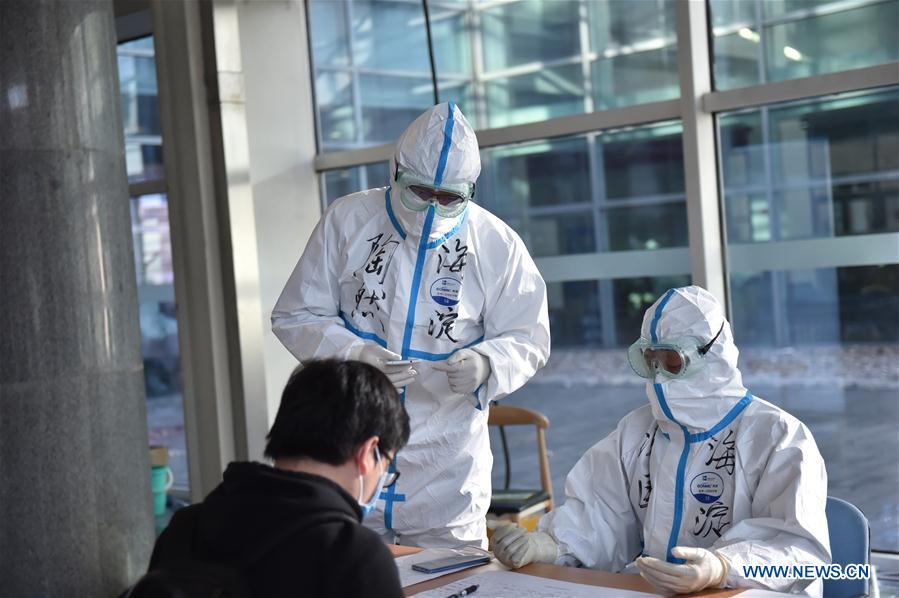Law strengthens anti-virus line of defense: China Daily editorial


As the adage says, a person who conceals his disease cannot hope to be cured. And in the current situation, a person who conceals that he or she has the novel coronavirus also puts others at risk and risks sabotaging the country's efforts to control the outbreak.
That is why, in an effort to immunize the country from the ever worsening pandemic situation overseas, the Chinese authorities decided on Monday to toughen the country's border health and quarantine law by criminalizing such acts as passengers hiding their possible novel coronavirus infections, or falsifying health statement cards when entering at checkpoints. Those convicted could face a maximum sentence of three years in prison.
This is both timely and necessary given the serious anti-virus challenge the country is now facing from those returning or coming to the country from overseas. Of the 16 new coronavirus infection cases reported on the Chinese mainland on Sunday, 13 were imported ones.
As the number of confirmed infection cases outside China keeps increasing — by nearly 11,000 on Sunday, mostly in Europe, according to the World Health Organization — panic has started to spread among many Chinese living, studying or doing business overseas, prompting them to return home in a rush, thus bringing with them risks of possible imported infections.
How well China can deal with this new emergency — after it has basically contained the spread of the virus within the country — will determine whether it will win a final victory over the outbreak that has already prompted a lockdown of Hubei province, and led to the rest of the country coming to a virtual standstill over the past two months.
Any lapse or misstep in this regard would undo all the achievements and sacrifices the country has already made. Actually China's health workers have accumulated enough experience and expertise in containing the spread of the virus, and timely diagnosis and treatment can save the lives of most patients. Yet someone deliberately hiding the truth about his/her health condition when returning from abroad — either out of ignorance or fear — risks tearing apart even the strongest line of defense against the deadly virus.
Lessons have already been learned. According to media reports, many of the country's imported confirmed cases have been a result of concealed information about the disease. In a latest case, a woman who arrived in Beijing on Friday aboard an Air China flight from Los Angeles tested positive because she and her husband and son — who are both classified as suspected cases now — had hidden their symptoms such as fever and nausea before boarding the flight. Police nationwide have investigated 13 similar cases.
Hopefully, the full force of the law will dissuade any possible violators from spreading the virus by hiding their conditions, and make the border more secure against the disease.
- Heavy rainstorm leaves three dead, four missing in Hebei resort
- China renews alerts for rainstorms, high temperature
- Beijing restores power, communications, water-supply to flood-hit villages
- Helicopter sightseeing project takes off over Wuliangsu Lake
- Court calls for judicial aid to inspire innovation
- Actions of J-10C fighter jet shown on TV





































